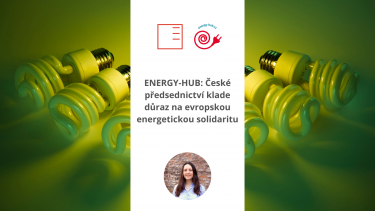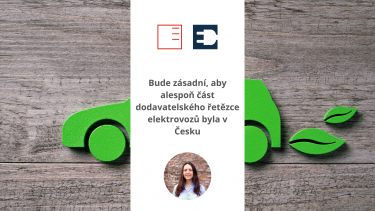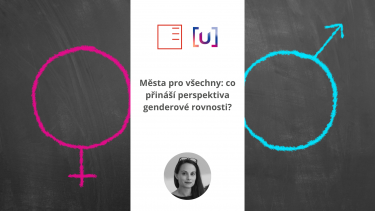BLOG | Climate, Energy and the Green Deal in the Czech Chain Mails
Tatiana Mindeková, our project manager and junior researcher, wrote a blog on the topic: Climate, Energy and the Green Deal in the Czech Chain Mails. What narratives are spread about the green politics of the EU in the Czech chain mails?
Show moreEkonews: Industry will continue to receive part of its emission allowances for free. New allowances for transport and buildings will fall on the people
The European Union's system for trading the emission allowances that polluters receive or buy to produce greenhouse gases will change. NGOs believe the shift will again benefit industry. Our senior researcher Katerina Davidova commented on the issue for Ekonews.
Show more
POLICY PAPER | Soaring electricity prices and development in the EU; the electricity market design under scrutiny?
As part of the internships provided by our Brussels office to Czech researchers, Tereza Stašáková wrote a policy paper on rising electricity prices and developments in the EU. It analyses the reasons for rising prices and how EU Member States have reacted to the situation. And whether the solution is to restructure the electricity market.
Show more PDFEU MONITOR | The future shift of energy policies in the European Union
In her EU Monitor, Zsanett Gréta Papp discusses the current energy situation in the EU Member States. Where to look for a replacement for gas from Russia? And how will this decision affect the EU's green policy agenda?
Show more PDF
Blog | Business-as-usual between Germany and China as a disruptive element for the European Union
The war in Ukraine and the subsequent economic crisis caused by Europe's dependence on Russian fossil fuels showed Europeans the danger of keeping too tight economic ties to autocratic regimes. However, while Europe is shedding its dependence on Russia, another economic reliance is gaining strenght, namely that of Germany on China. In her blog, our intern Kristina Kropáčková explores the broader context of this phenomenon and its implications for EU cohesion.
Show moreENERGY-HUB: Czech Presidency emphasises European energy solidarity
Our senior researcher Kateřina Davidová participated in the conference "How did the Czech Republic turn green during the European Presidency?". She commented on what she believes is the success of the Czech Presidency.
Show more
oEnergetice: Six months of the Czech Presidency have seen progress in the European energy sector
On the occasion of the conference "How did the Czech Republic turn green during the European Presidency?" our Senior Research Fellow Kateřina Davidová commented on the progress of the EU's climate policy and energy transformation, as well as emission-free transport.
Show more
Aktuálně.cz: It will be essential that at least part of the electric vehicle supply chain is in the Czech Republic
On the occasion of the conference on the topic "How did the Czech Republic turn green during the European Presidency?" spoke our senior researcher Kateřina Davidová. She mentioned that the Czech Republic has promoted a unified approach of the EU countries in the energy sector during the Presidency, for example by having a higher than the standard number of ministerial councils for this issue. She also commented on the ban on selling cars with internal combustion engines after 2035. She says that it will be essential that at least part of the supply chain for electric cars is in the Czech Republic.
Show more
URBACT: Cities for all: what does a gender perspective bring?
Our research associate Katarína Svitková wrote an article for URBACT. In the text, she outlines where gender is an issue in urban planning and management and how this perspective can help build better cities for life.
Show more
Blog | US Midterms: Consequences for the security of Eastern Europe
The recent US midterm elections made headlines around the world. The main issues that voters were interested in were the state of democracy and the rule of law, abortion, the economy and education. Our intern Tomáš Moudrý addressed these topics in his blog. "The most expensive midterms in the US history are over. Republicans gained the House majority with 221 seats and the Democrats retained the Senate with 51 seats. Is this a surprising result? Partly yes, partly no. Firstly, polls and even Republicans were sure about a “Red wave“ that would sweep across the US. Instead, there was a tossup in both Chambers of the Congress. Secondly, the President’s party usually lose the midterms. One can argue that midterms from the incumbent President’s party perspective traditionally have just one major goal – to mitigate losses by the closest possible margin. The Democrats seem to have found a way to deal with this fate, despite Biden's low approval rating."
Show more PDFStaroměstské náměstí 4/1
Prague 1 - Staré Město
110 00
tel.: +420 212 246 552
email: europeum@europeum.org
https://www.europeum.org









